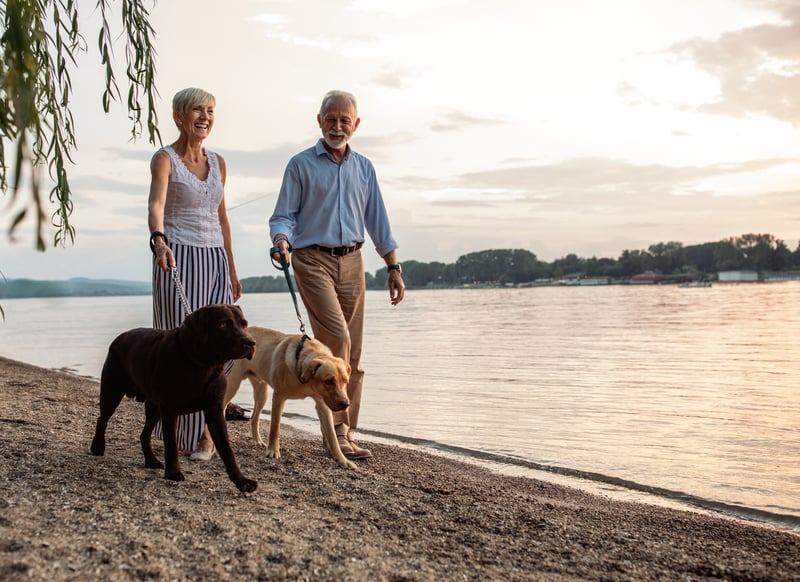Using the RefillRx mobile app? Then you will love our new, ENHANCED Sentry Drug Center mobile app.
Quickly request refills or login and manage your prescriptions on the go!
Available on both iTunes and Google Play.
Call or Visit for All of your Vaccination Needs!
Manténgase sano!

- Cara Murez
- Posted April 27, 2023
Dog-Walking Downside: Fractures, Head Injuries
Walking your dog gets you moving and out in the fresh air, but head injuries and fractures are very real possibilities, especially for older dog owners, researchers say.
The most common injury from walking a leashed dog that sends folks to the ER is fractured fingers, a new study from Johns Hopkins University found.
But traumatic brain injuries (TBIs) are the second-most common injury adults suffer while walking a leashed dog. The third most common injury is shoulder sprain or strain.
"According to a 2021-2022 national pet ownership survey, nearly 53% of U.S. households own at least one dog,"said study co-author Ridge Maxson, a third-year medical student.
"Dog ownership also increased significantly in recent years during the COVID-19 pandemic. Although dog walking is a common daily activity for many adults, few studies have characterized its injury burden. We saw a need for more comprehensive information about these kinds of incidents,"Maxson said in a university news release.
Women and all adults age 65 and older are more likely than others to sustain serious injuries, the research team found.
Researchers hope doctors will discuss these potential threats with their dog-loving patients.
"Clinicians should be aware of these risks and convey them to patients, especially women and older adults,"said co-author Dr. Edward McFarland, director of the division of shoulder and elbow surgery at Johns Hopkins Medicine.
"We encourage clinicians to screen for pet ownership, assess fracture and fall risk and discuss safe dog walking practices at regular health maintenance visits for these vulnerable groups," McFarland said in the release. "Despite our findings, we also strongly encourage people to leash their dogs wherever it is legally required."
For the study, researchers used data from the National Electronic Injury Surveillance System database, operated by the U.S. Consumer Product Safety Commission. Here are some of the findings:
- More than 422,000 adults sought treatment in U.S. emergency rooms for injuries related to dog walking between 2001 and 2020.
- Nearly half of all patients were ages 40 to 64. About 75% of patients were women.
- Most of the injuries happened when they fell after being pulled by, tangled in or tripped by their dog's leash.
- In adults ages 65 and older, TBI and hip fracture were the two most common injuries.
- Injured women were 50% more likely than men to sustain a fracture.
- Older dog walkers were more than three times as likely to experience a fall. They were also more than twice as likely to have a fracture and 60% more likely to sustain a TBI.
The brain injuries included concussions and non-concussive internal head injuries, which can include a bruise of the brain tissue, bleeding above the brain's outer membrane and bleeding beneath the brain's outer membrane.
Annual incidence of injuries due to leashed dog walking more than quadrupled over the 20 years, the study found. Reasons may include increased dog ownership rates and how dog walking is promoted for improving fitness.
Study results were published recently in Medicine & Science in Sports & Exercise.
More information
Rush University in Chicago has some tips on preventing dog walking injuries.
SOURCE: Johns Hopkins Medicine, news release, April 25, 2023
